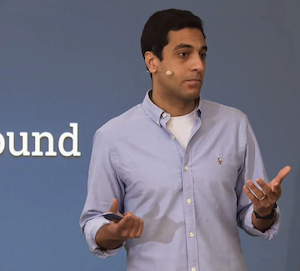open source licensing
See the following -
3 Key Open Source Challenges in Developing Countries
 When I go back home and talk to people in the tech industry, or any other industry for that matter, about what I do and the topics I'm involved in daily, I'm usually met with bemusement at the idea of an Open Source Programs Office (OSPO). The concept of a company contributing to an open source project without obvious immediate financial benefit can be culturally strange to understand or explain. As someone born and raised in a country that has been trying to develop for quite some time, I understand and relate to that. There was a point in time when my only understanding of open source was that it was software that I could use without paying and without needing to wait for a specific issue or additional feature to be released. I could just do whatever I needed myself, locally. Open source faces many struggles in developing countries that make how it's perceived and its associations inaccurate and out of touch. I will discuss these struggles in this article.
When I go back home and talk to people in the tech industry, or any other industry for that matter, about what I do and the topics I'm involved in daily, I'm usually met with bemusement at the idea of an Open Source Programs Office (OSPO). The concept of a company contributing to an open source project without obvious immediate financial benefit can be culturally strange to understand or explain. As someone born and raised in a country that has been trying to develop for quite some time, I understand and relate to that. There was a point in time when my only understanding of open source was that it was software that I could use without paying and without needing to wait for a specific issue or additional feature to be released. I could just do whatever I needed myself, locally. Open source faces many struggles in developing countries that make how it's perceived and its associations inaccurate and out of touch. I will discuss these struggles in this article.
- Login to post comments
6 remarkable features of the new United Nations open source initiative
 The United Nations wants to make technology, software, and intellectual property available to everyone, including developing countries. Open source and free software are great tools to achieve this goal since open source is all about empowering people and global collaboration while protecting the personal data and privacy of users. So, the United Nations and the open source community share the same values. This new open source strategy and policy is developed by the United Nations Technology Innovation Labs (UNTIL). Last month, we had our first in-person meeting in Helsinki in the UNTIL offices. I find this initiative remarkable for several reasons:
The United Nations wants to make technology, software, and intellectual property available to everyone, including developing countries. Open source and free software are great tools to achieve this goal since open source is all about empowering people and global collaboration while protecting the personal data and privacy of users. So, the United Nations and the open source community share the same values. This new open source strategy and policy is developed by the United Nations Technology Innovation Labs (UNTIL). Last month, we had our first in-person meeting in Helsinki in the UNTIL offices. I find this initiative remarkable for several reasons:
- Login to post comments
7 Notable Legal Developments in Open Source in 2016
 In 2012 the jury in the first Oracle v. Google trial found that Google's inclusion of Java core library APIs in Android infringed Oracle's copyright. The district court overturned the verdict, holding that the APIs as such were not copyrightable (either as individual method declarations or their "structure, sequence and organization" [SSO]). The Court of Appeals for the Federal Circuit, applying 9th Circuit law, reversed, holding that the "declaring code and the [SSO] of the 37 Java API packages are entitled to copyright protection." The U.S. Supreme Court declined to review the case, and in 2016 a closely watched second trial was held on Google's defense of fair use. In May 2016 the jury returned a unanimous verdict in favor of Google...
In 2012 the jury in the first Oracle v. Google trial found that Google's inclusion of Java core library APIs in Android infringed Oracle's copyright. The district court overturned the verdict, holding that the APIs as such were not copyrightable (either as individual method declarations or their "structure, sequence and organization" [SSO]). The Court of Appeals for the Federal Circuit, applying 9th Circuit law, reversed, holding that the "declaring code and the [SSO] of the 37 Java API packages are entitled to copyright protection." The U.S. Supreme Court declined to review the case, and in 2016 a closely watched second trial was held on Google's defense of fair use. In May 2016 the jury returned a unanimous verdict in favor of Google...
- Login to post comments
8 open source drone projects
 Over the past few years, interest in civilian, military, and commercial drones has grown rapidly, which has also driven the maker community's interest in open source drone projects. The list of unmanned aerial devices (UAVs) that fit the moniker of drone seems to be constantly expanding. These days, the term seems to encompass everything from what is essentially a cheap, multi-bladed toy helicopter, all the way up to custom-built soaring machines with incredibly adept artificial intelligence capabilities. Most people are looking for something in the middle. They'd like a flying vehicle that is large enough to support a decently long flight time, hold a camera or other data capture device, and perhaps be able to control some (or all) of its flight autonomously using pre-programmed coordinates or real-time data.
Over the past few years, interest in civilian, military, and commercial drones has grown rapidly, which has also driven the maker community's interest in open source drone projects. The list of unmanned aerial devices (UAVs) that fit the moniker of drone seems to be constantly expanding. These days, the term seems to encompass everything from what is essentially a cheap, multi-bladed toy helicopter, all the way up to custom-built soaring machines with incredibly adept artificial intelligence capabilities. Most people are looking for something in the middle. They'd like a flying vehicle that is large enough to support a decently long flight time, hold a camera or other data capture device, and perhaps be able to control some (or all) of its flight autonomously using pre-programmed coordinates or real-time data.
A Primer on the Open Source Movement from a Health Care Perspective
 Open source, in myriad forms, has emerged as a significant development model that drives both innovation and technological dispersion. Ignore it at your peril, as did the major computer companies destroyed or totally remade by Linux and free software, or encyclopedia publishers by Wikipedia, or journalists and marketers by social media. The term "open source" was associated first with free software, but it goes far beyond software now. People around the world use open hardware, demand open government, share open data, and--yes--pursue open health. The field of health, in particular, will be transformed by open source principles in software, in research, in consultations and telemedicine, and in the various forms of data sharing all these processes call for.
Open source, in myriad forms, has emerged as a significant development model that drives both innovation and technological dispersion. Ignore it at your peril, as did the major computer companies destroyed or totally remade by Linux and free software, or encyclopedia publishers by Wikipedia, or journalists and marketers by social media. The term "open source" was associated first with free software, but it goes far beyond software now. People around the world use open hardware, demand open government, share open data, and--yes--pursue open health. The field of health, in particular, will be transformed by open source principles in software, in research, in consultations and telemedicine, and in the various forms of data sharing all these processes call for.
- Login to post comments
APIcon UK: Open Source Fuels The API Economy
Industry leaders say open source is the backbone of the software infrastructure required to fuel the API economy. At APIcon UK, Simon Phipps, president of the Open Source Initiative, explained why open source licensing will enable the API and Internet of Things economies to grow...
- Login to post comments
Arduino Creator Explains Why Open Source Matters In Hardware, Too
Most of the technology world is familiar with open source software and the reasons why, in some eyes, it's more appealing than proprietary software. When software's source code is available for anyone to inspect, it can be examined for security flaws, altered to suit user wishes, or used as the basis for a new product. Read More »
- Login to post comments
Broad Institute to Release Genome Analysis Toolkit 4 (GATK4) as Open Source Resource to Accelerate Research
 The Broad Institute of MIT and Harvard will release version 4 of the industry-leading Genome Analysis Toolkit under an open source software license. The software package, designated GATK4, contains new tools and rebuilt architecture. It is available currently as an alpha preview on the Broad Institute's GATK website, with a beta release expected in mid-June. Broad engineers announced the upgrade, as well as the decision to release the tool as an open source product, at Bio-IT World today...
The Broad Institute of MIT and Harvard will release version 4 of the industry-leading Genome Analysis Toolkit under an open source software license. The software package, designated GATK4, contains new tools and rebuilt architecture. It is available currently as an alpha preview on the Broad Institute's GATK website, with a beta release expected in mid-June. Broad engineers announced the upgrade, as well as the decision to release the tool as an open source product, at Bio-IT World today...
- Login to post comments
French Gendarmerie: "Open Source Desktop Lowers TCO By 40%"
Using an open source desktop lowers the total cost of ownership by 40%, in savings on proprietary software licences and by reducing costs on IT management. Using Ubuntu Linux massively reduces the number of local technical interventions, says Major Stéphane Dumond... Read More »
- Login to post comments
GitHub's Wild West Approach To Licensing Has Hidden Costs
The GitHub generation doesn't seem to like the bother of licenses, but is it prepared to stomach the costs? Read More »
- Login to post comments
How the Federal Reserve Bank of New York Navigates the 'Supply Chain' of Open Source Software
Large companies have divisions and subsidiaries that make efficient organizational management a challenge. Perhaps no one recognizes that more than Colin Wynd, vice president and head of the Common Service Organization at the Federal Reserve Bank of New York. Wynd is charged with ensuring that software development practices and strategy are forward-thinking and secure, and adhere to compliance regulations. Several years ago, Wynd and his team started to think more holistically about how their developer teams worked, he explained in a presentation at the recent Jenkins World conference in San Francisco...
- Login to post comments
IMS Maxims Open To Open Source
IMS Maxims is in discussions with NHS England about the possibility of open sourcing some of its software. Guidance released this month by NHS England, ‘Safer Hospitals, Safer Wards: achieving an integrated digital care records’, says the commissioning board wants to create a “vibrant market” of national solutions and products that are available under open source licensing arrangements.
- Login to post comments
Is Use of the Open Source GPL License Declining?
 A little while ago I saw an interesting tweet from Stephen O'Grady at RedMonk on the state of open source licensing, including this graph. This graph shows how license usage has changed from 2010 to 2017. In reading it, it is clear that usage of the GPL 2.0 license, one of the purest copyleft licenses around, has more than halved in usage. According to the chart it would appear that the popularity of open source licensing has subsequently shifted to the MIT and Apache licenses. There has also been a small increase in GPL 3.0 usage. So, what does all this mean?
A little while ago I saw an interesting tweet from Stephen O'Grady at RedMonk on the state of open source licensing, including this graph. This graph shows how license usage has changed from 2010 to 2017. In reading it, it is clear that usage of the GPL 2.0 license, one of the purest copyleft licenses around, has more than halved in usage. According to the chart it would appear that the popularity of open source licensing has subsequently shifted to the MIT and Apache licenses. There has also been a small increase in GPL 3.0 usage. So, what does all this mean?
- Login to post comments
Legal Issues in Open Source Today from Annual Symposium
 On January 23 this year, the Santa Clara High Tech Law Journal had their annual symposium on open source in the legal field at Santa Clara University. Prominent practitioners in the open source community spoke on topics ranging from licensing and compliance to healthcare and entertainment law. For anyone newly learning about open source licensing, this is a great look at some of the issues today... Read More »
On January 23 this year, the Santa Clara High Tech Law Journal had their annual symposium on open source in the legal field at Santa Clara University. Prominent practitioners in the open source community spoke on topics ranging from licensing and compliance to healthcare and entertainment law. For anyone newly learning about open source licensing, this is a great look at some of the issues today... Read More »
- Login to post comments
Linux Development Report: Mobile Vendors Storm The Linux Bazaar
Linux kernel development is more mobile and more commercial every day. Cause for concern... or celebration? Read More »
- Login to post comments